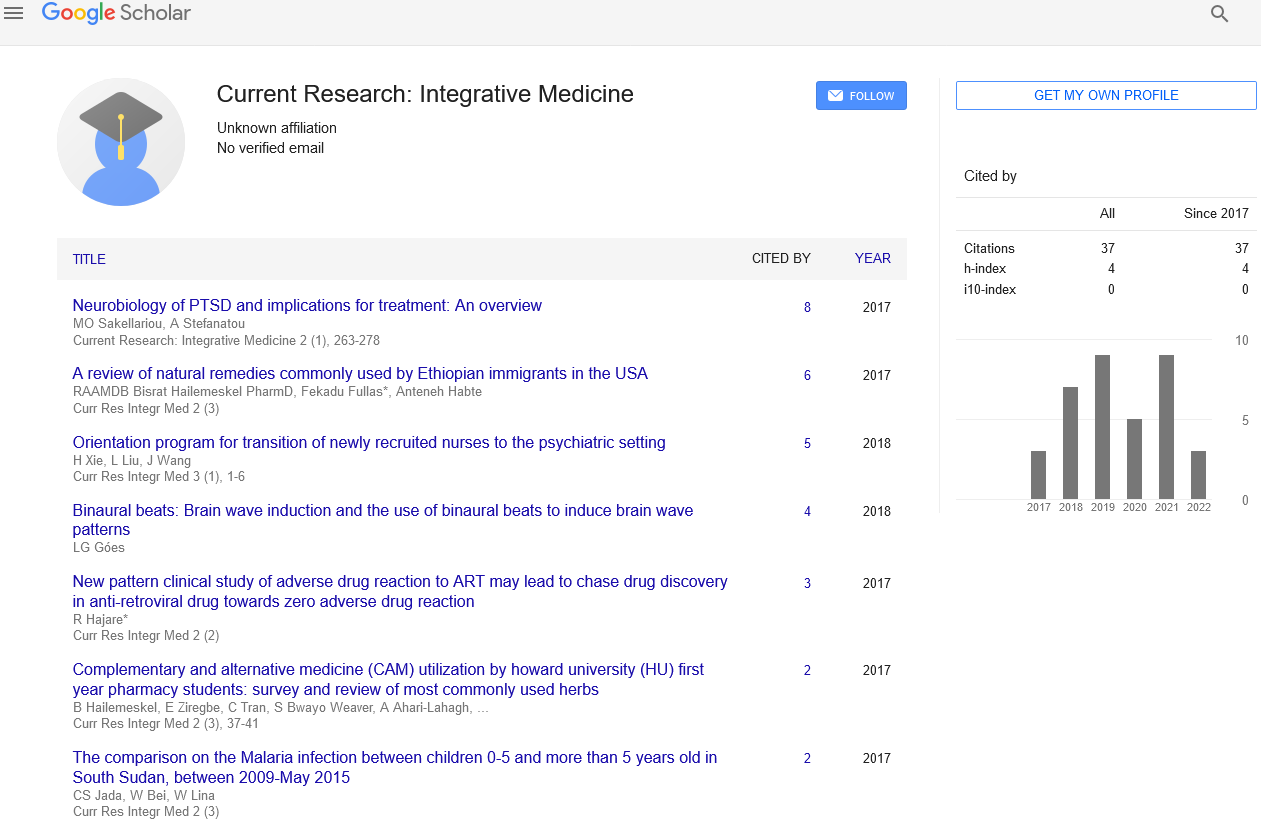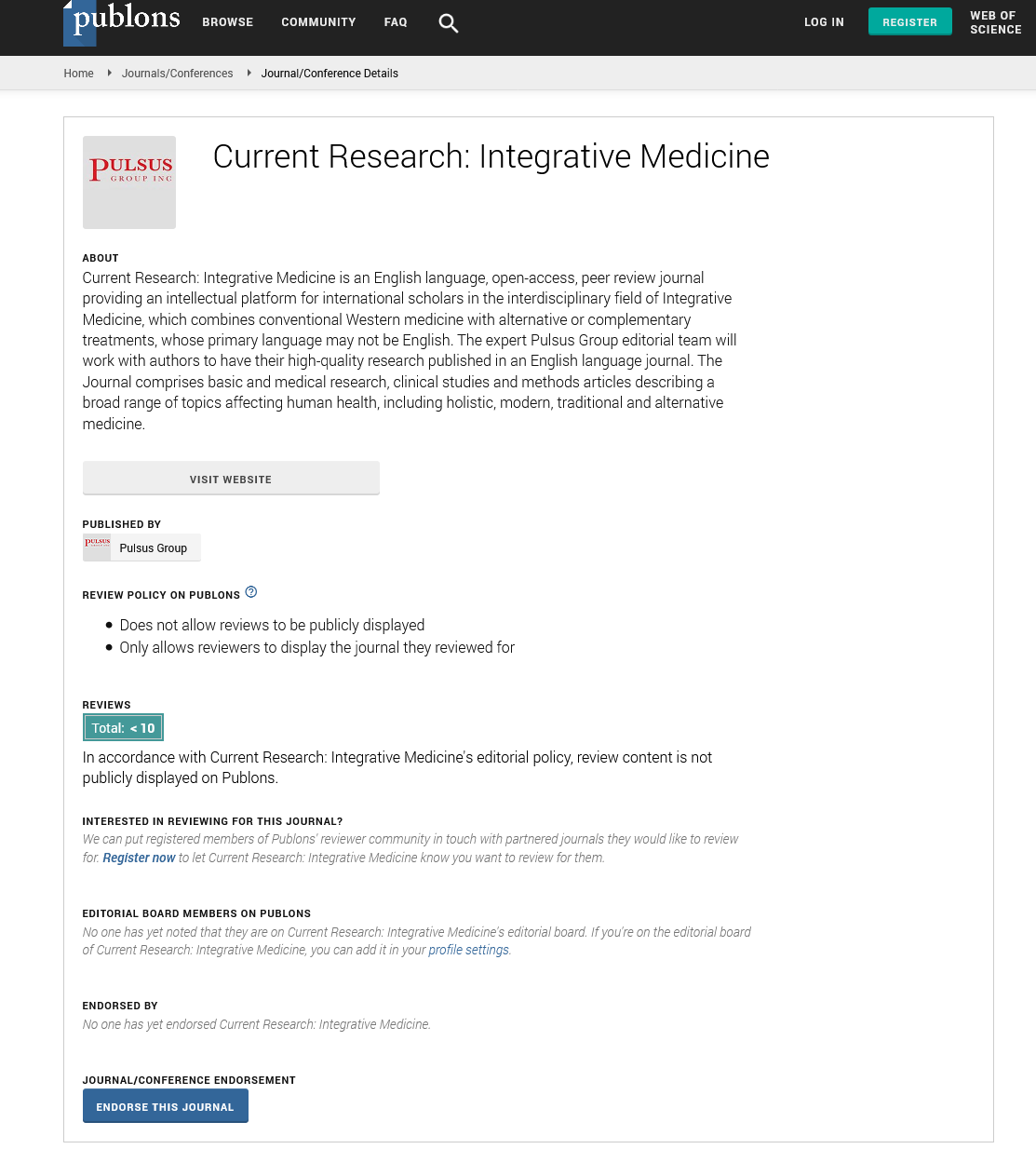
Sign up for email alert when new content gets added: Sign up
Nanoencapsulation of phenolic compounds of Tunisian rosemary (Rosmarinus officinalis L.) extracts in silk fibroin nanoparticles
Webinar on Natural Products, CAM Therapies, and Traditional Chinese Medicine
July 04, 2022 | Webinar
Kheiria Hcini, Antonio A. Lozano-Perez, Jose Luis Cenis, Maria Quílez and Maria Jose Jordan
University of Tunis El Manar, Tunisia University of Gafsa, Tunisia Instituto Murciano de Investigacion y Desarrollo Agrario y Medioambiental (IMIDA), Spain Instituto Murciano de Investigacion Biosanitaria (IMIB), Spain
Posters & Accepted Abstracts: Curr Res Integr Med
Abstract :
Rosemary (Rosmarinus officinalis L.) is known to be an effective potential source of natural antioxidants which confer benefits to human health. Their bioactive properties are mainly due to phenolic compounds but these molecules are highly vulnerable to oxidants, light, heat, pH, water and enzymatic activities. Therefore, the stability and shelf life of phenolic compounds should be increased by being protected from chemical and physical damage by means of encapsulation prior to application. Encapsulation is becoming increasingly important in the pharmaceutical, food, cosmetics, textile, personal care, chemical, biotechnology, and medicinal industries due to its potential for stabilization and delivery of delicate and precious bioactive compounds. The aim of the present work was to describe the polyphenolic profile of Tunisian Rosemary, and further loading in silk fibroin nanoparticles. The loaded nanoparticles were characterized in terms of morphology, size, polydispersity, Z-potential, secondary structure of the protein, encapsulation efficiency, loading content, and antioxidant activity. Loaded nanoparticles were almost spherical and presented nanometric size and negative Z-potential. Although the encapsulation efficiency in silk fibroin nanoparticles and the drug loading content were low in the conditions of the assay, the encapsulated polyphenols retained near 85% of the radical scavenging activity against DPPH after 24 h. of incubation at 37°C. The results showed that post-distilled rosemary residues had an effective potential as natural antioxidants due to their significant antioxidant activity and seemed to be useful in both pharmaceutical and food industries with beneficial properties that might confer benefits to human health and these silk fibroin nanoparticles loaded with rosemary extracts are thus a promising combination for several applications in food technology or nanomedicine.
Biography :
Kheiria Hcini has her expertise in determination of polyphenolic profile and evaluation of antioxidant activities of bioactive molecules (Phenolic compounds and essential oil) of aromatic and medicinal plants Rosemary, thym.) and further loading in silk fibroin nanoparticles the plants having expressed the highest levels of phenolic compounds and having the best antioxidant capacity in silk fibroin nanoparticles (SFN), for the controlled release of these compounds in applications in the field of biomedicine, cosmetics, and food.





